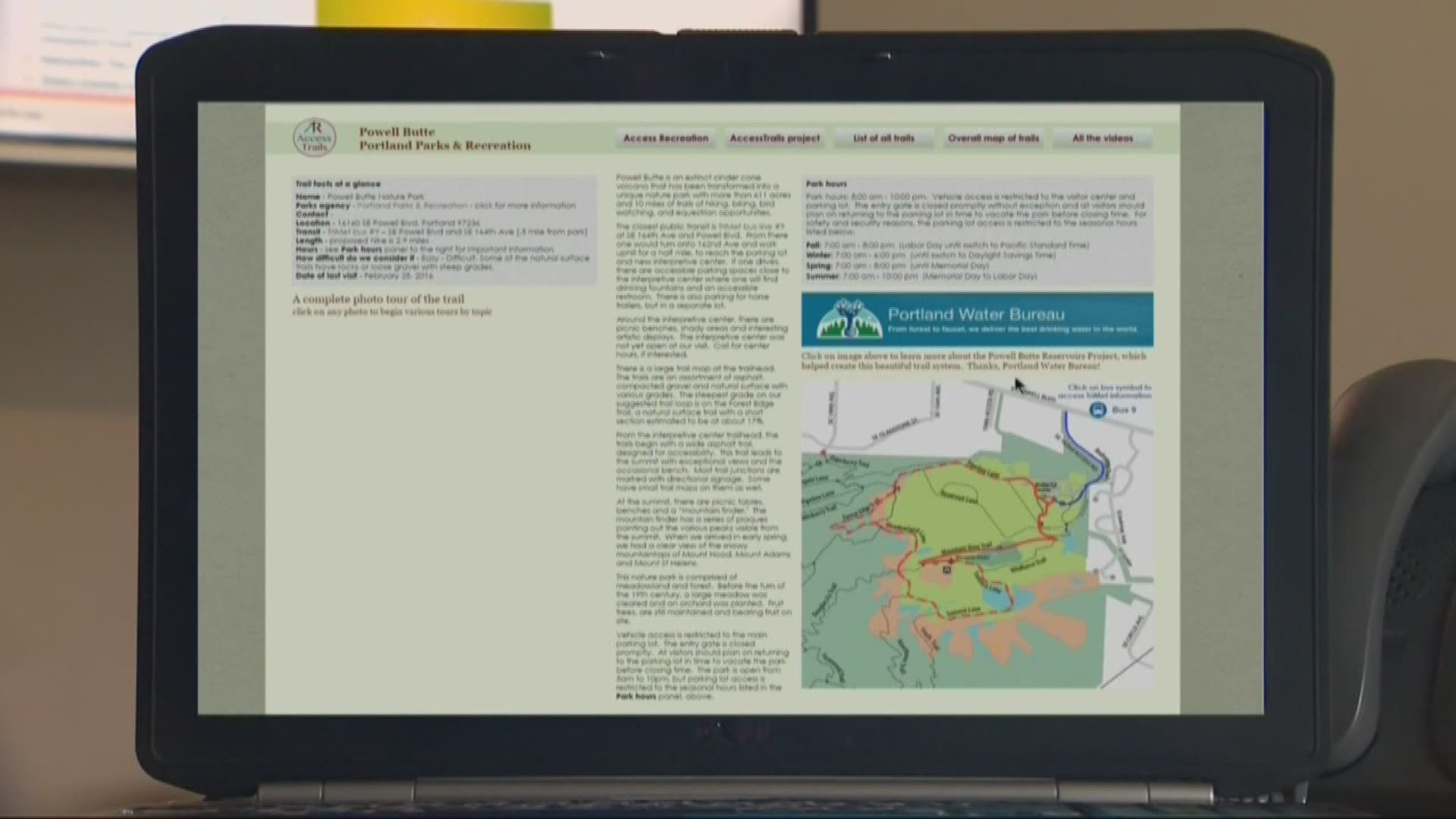PORTLAND, Ore. -- It happens every year, when the clouds start to clear and the temperature starts to rise.
That’s when, for many, the urge to pack Portland’s parks and trails becomes overwhelming.
58-year-old Georgena Moran is no exception.
“It's always worth the risk for me to go out and explore and see if I can find something out there,” she said.
Though Moran makes no bones about the fact that it’s harder for her than most.
“I got diagnosed with MS when I was 40 years old,” she said. “Sometimes it's just that one little obscure obstacle that might be a show-stopper for me.”
Such an obstacle might be a root, struggling to rise up from underneath the soil or a boulder, blocking a sharp corner of a path.
Those things, while barely noticeable to walkers and runners, can bring Moran’s outdoor adventure, as well as her motorized wheelchair, to a screeching halt.
Sometimes the mere chance of that happening, stops an adventure before it starts.
“For me, if I have the information ahead of time, then I know that I can risk driving an hour and a half or two hours to get to some place and find the recreational experience that I know will serve me,” she said. “I may not want to drive that distance if I don’t know ahead of time.”
It’s a problem easily solved, she says, with information.
Things like how rough a trail is, what it’s made of and its proximity to the nearest TriMet or MAX stop are crucial.
Four years ago, she says, those details were nowhere to be found.
“There was a lot of parks that had accessible features but they didn’t have information for the off-road type trails, the back-country trails,” said Moran.
The result is Access Recreation, a program and website complete with maps, detailed directions, even video profiles on local trails.
The footage is shot, in part, with Moran’s GoPro camera, mounted to her wheelchair, and it accompanies minute descriptions.
“If I know there's no accessible drinking fountain, I'll bring water,” she said. “To know there might be a curb; I've got a little portable curb ramp.”
The idea, she says, is to give people with physical disabilities the information they need to decide which trails are right for them.
Moran says she first crafted the site, with a set of guidelines on profiling trails for people with disabilities, as a “how to” guide for local agencies to follow.
None did.
Instead, the state Forest Service, Metro and other governing bodies asked her to keep going.
Moran just received her second grant from Metro, which will allow her to profile 12 new trails, on top of the 24 she’s already covered.

